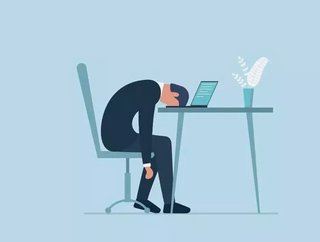Are You Tired Of Virtual Meetings?

Are you feeling fatigued due to the vast amount of virtual meetings that you are in? Experts warned Insider that it can induce anxiety and depression, we explore the matter below.
Social distancing guidance due to the coronavirus pandemic means instead of meeting our friends and family in person, we now socialize virtually. However, as many people jump headfirst into endless chats on Zoom, Skype, Houseparty, and Google Hangouts, it can feel very overwhelming and start to induce anxiety for some. Therapists have explained why it's imperative to put boundaries in place and say no when you need to in order to protect your mental health.
Whilst it's wonderful that we live in an age technologically advanced enough that we can keep in touch with our loved ones through a digital device, but as our screentime soars and the invitations to chats on Zoom, Facetime, Whatsapp video, Houseparty, and Skype keep coming, what if you find you just don't want to any more?
What if it all starts to feel a bit overwhelming and a little stressful? What if you just want some time to yourself?
Zoom fatigue, if you will, is something the more introverted amongst us are likely to be feeling right now, but while we used to be able to decline social engagements for sacred alone time to protect our mental health, we now have no excuse.
Psychotherapist Cate Campbell told Insider she thinks it's "absolutely" understandable that some people are feeling stressed out by virtual socializing.
"I think we all felt disappointed that we wouldn't be able to keep up with friends and family or carry out plans and commitments while self-isolating, so everyone dived into a whole lot of virtual socializing. But that has just created a new set of pressures," she said.
"People imagined all sorts of possibilities for when they were home, such as spending more time with their partner and/or children, catching up with other relatives and friends, cooking more, DIY, housework, gardening, plus virtual cocktail hours, quizzes, games, movie watching, etc.
"Actually, when we stop going out for work, most of us realize how tired we are and that we don't have the energy for a fraction of the activities we hoped to accomplish."
Combine work with the anxieties of the coronavirus pandemic plus, for some, the pressure of looking after children, and people are realizing they don't have anywhere near as much time or mental headspace as they thought they might while social distancing.
"There's also no gear change between work and home, which means if you've been online or in conference calls all day, the last thing you need is to join another group call when you finish work," said Campbell.
"Being at home, you may need to spend more time tidying up before you can relax too. Things like online ordering and going to the supermarket take much longer now than they normally would and many of us feel obliged to call family members we don't live with, so you need to look at the day you have timetabled and shave off 20-25% to avoid feeling overwhelmed."
Most people are feeling more anxious than normal right now, and for some people, chatting to friends all the time will help. For others, it won't.
Equally, psychologist Emma Kenny points out that if you're finding the current situation more challenging than your friends, forcing yourself to talk to them may not help.
"You know that on one hand staying connected is powerful for combatting feelings of isolation and for encouraging positive mental wellness, but if you are not actually in a space where you feel able to relate to others in a better mental space than you, then sometimes forcing yourself to do so is counterproductive," Kenny told Insider.
You need to step back and reflect on how scheduling virtual catch-ups with your mates is actually making you feel.
"When it does start to feel oppressive rather than fun, we need to realize we are becoming stressed," said Campbell.
"It's also easy at the moment to have the same conversation repeatedly or keep checking the news for updates and then talking over what you've found.
No one knows how long we're going to be social distancing for, and thus how long it will be before we can see our friends and family in person again.
So even though you may have jumped head-first into Houseparty and Zoom, the novelty may wear off, your enthusiasm may wane, and you may find it starts to become more draining. And if that happens at some point, that's when you need to speak up.
"It's completely understandable to feel overwhelmed," said Singh.
The prospect of saying no to a friend's suggestion to chat simply because you need time to yourself can be daunting, but it's not selfish, and a good friend should understand that.
If you need anybody to talk to please call the Samaritans on 116 123 or drop us on a message on Facebook and we can point you in the right direction, we are all in this together.






